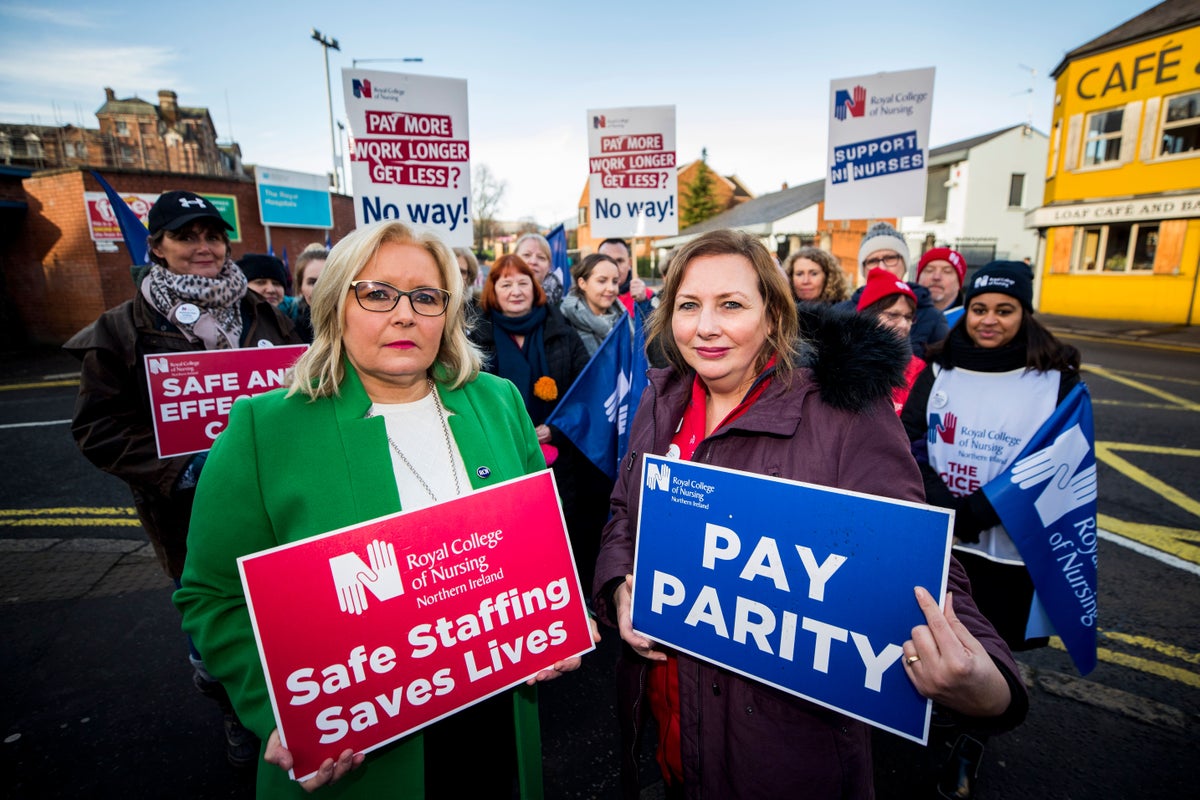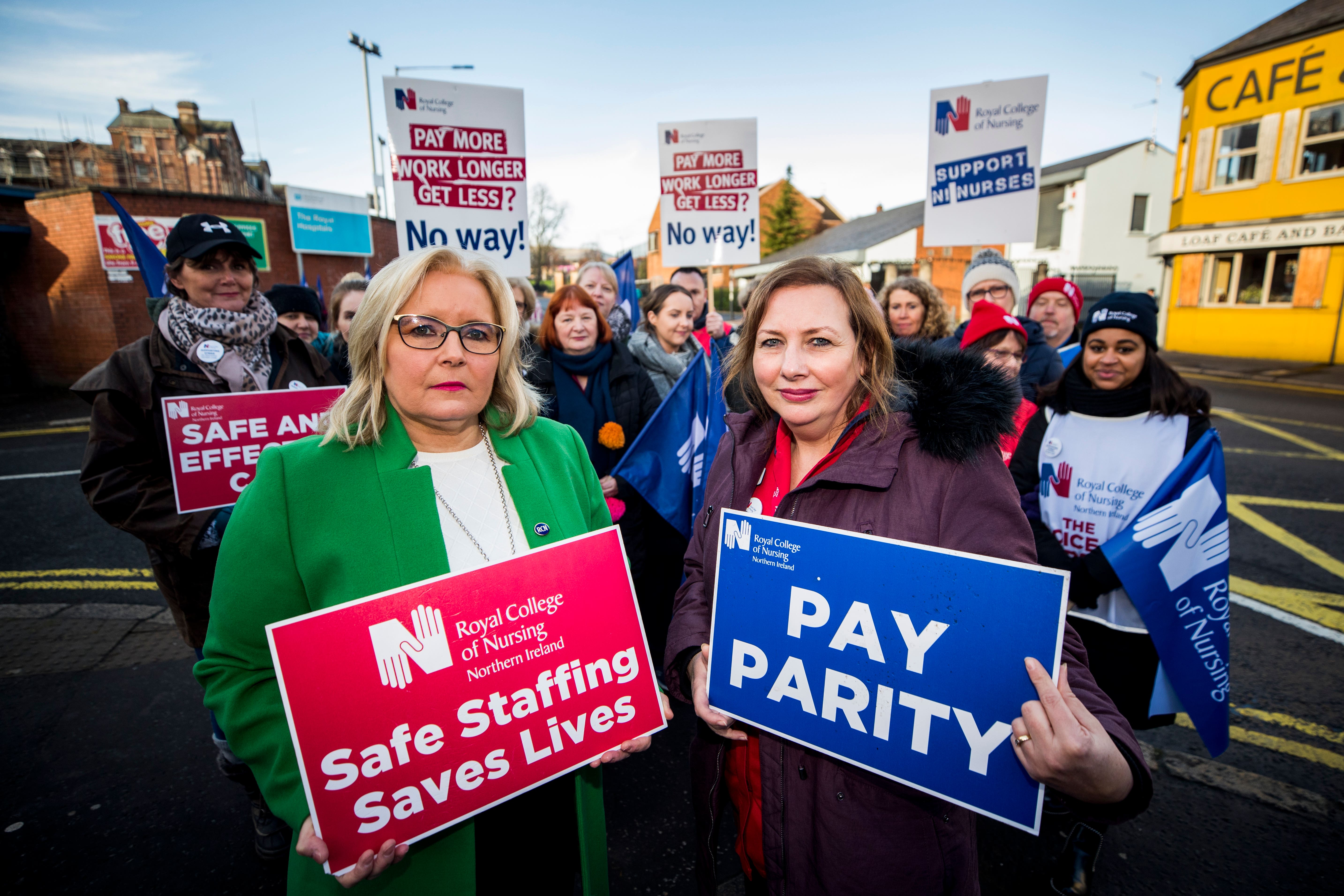
Nurses across the country are expected to vote in favour of unprecedented strike action.
The Royal College of Nursing, which represents hundreds of thousands of nurses, midwives, healthcare assistants, nursing associates and student nurses, is expected to announce the results of its ballot on Wednesday afternoon.
The results come as other major health care unions, Unite, Unison and GMB, have launched ballots over strike action. The government could also face industrial action from junior doctors.

Why were nurses balloted?
The RCN launched its ballot over industrial action after the government failed to meet requirements to offer nurses an above-inflation pay rise.
Nurses in England and Wales were offered an average rise of 4.75 per cent, while staff in Scotland were offered just over 8 per cent.
The offers, which are below the current inflation rate of 12 per cent, effectively mean a real terms pay cut.
The RCN has called for a pay award that is at least 5 per cent above inflation to address several years of declining real terms pay.
Research by the London School of Economics showed nurses have seen a 20 per cent decrease in pay over the past decade.
Nurses across the country have also called for industrial action over rising staffing pressures and shortages. There are almost 47,000 nurse vacancies across England and 40,000 nurses left the profession in the past year.
The aim of the strike action will be to put pressure on the government to put forward a new pay offer.
The government has argued that the pay award offered is in line with recommendations made by the independent NHS Pay review body and that NHS staff received a pay increase of 3 per cent last year.
What happens if nurses vote to strike?
The ballot has been carried out at an individual organisation level, not a national one. GP practices have not been included.
This means staff at individual hospitals and community services were balloted and so some organisations may not have any staff striking at all, while others may have the majority on strike.
The RCN will decide when the first walkout happens, which could be before Christmas, but the RCN has a six-month window to hold the action in England. For Northern Ireland, strike days would have to occur within a month.
What will happen to NHS services on a strike day?
Emergency care services will be maintained, meaning staff will continue working in A&E and intensive care units.
Planned operations will very likely be postponed, with trusts planning to cancel most planned care. Cancer services may be maintained depending on negotiations between union reps and individual trusts.
Community services will also be impacted although hospitals are likely to negotiate to maintain emergency care such as rapid response teams.
Staffing levels are expected to be similar to those maintained on bank holidays.







